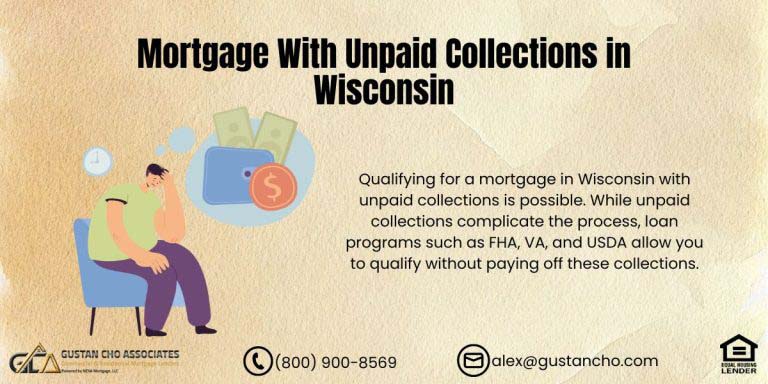This guide covers how derogatory credit affects mortgage approval. In this blog we will discuss how derogatory credit affects mortgage approval. Having derogatory credit tradelines that is 12 months old or older is not a big issue. However, having derogatory credit affects mortgage approval if the derogatory credit has been in the past 12 months. Dale Elenteny explains about how 80% of our borrowers at Gustan Cho Associates are folks who could not qualify at other mortgage company and how we say YES while other lenders say NO.
It is no secret Gustan Cho Associates are experts in mortgage lending when it comes to derogatory credit tradelines and low credit scores.
We receive inquiries every day regarding the waiting period to enter a mortgage after a derogatory credit tradelines such as late payments, collections, charge-offs, judgments and events such as a foreclosure or bankruptcy. In this blog, we will detail how derogatory credit affects mortgage approval. We will also cover issues that will affect qualifying and getting approved for a mortgage and what loan options are available.
How Derogatory Credit Affects Mortgage Approval: Lender with No Overlays
Gustan Cho Associates has a national reputation without LENDER OVERLAYS on government and conventional loans. Gustan Cho Associates only goes by minimum agency guidelines and do not have overlays. We do not have any additional waiting periods after derogatory credit events besides the agency minimum waiting period requirements. Due to no lender overlays policy, it allows us to help more borrowers than most lenders! In this article, we will discuss and cover how derogatory credit affects mortgage approval.
How Derogatory Credit Affects Mortgage Approval: Types of Bad Credit
There are many different types of derogatory credit tradelines. They each have a different degree of severity when qualifying and getting approved for a mortgage loan. Something like a 30-day late payment will have less impact on your credit score than a 90-day late payment. John Strange, a senior mortgage loan originator at Gustan Cho Associates says the following about how derogatory credit affects mortgage approval:
It sounds like common sense but it can be more difficult with more severe derogatory credit events such as a short sale compared to deed-in-lieu.
Borrowers can have derogatory credit tradelines that is older than 12 months. They do not have to pay outstanding collections or charge-off accounts that are older than 12 months old. However, it is best that borrowers do not have derogatory credit tradelines such as a late payment in the past 12 months. The content in this guide will cover general information for a typical borrower to qualify and get approved with Gustan Cho Associates and by no means target any one of our clients or specific person. The content discussed with be information and case scenarios in general and is not specific to any person or example.
Worried About Bad Credit Hurting Your Mortgage Chances?
Learn how derogatory marks impact approval — and what you can do to fix it.
How Derogatory Credit Affects Mortgage Approval: 780 FICO Borrowers
Starting credit score of 780 and the effects of derogatory credit events: With a starting credit score of 780, you will see a dramatic decrease in your credit score after a derogatory event. It is estimated that a 30-day mortgage late payment will take your credit score all the way down to the 670 -690 range from a 780 credit score. A recent late payment, collection, charge-off, or other derogatory credit hit on your credit report will drop your scores significantly.
A 90-day late payment will drop your score down to the 650-670 range. Hopefully, you are able to recover from the late payments and get back on track.
But if you are not, you may need to enter into a short sale/deed in lieu, foreclosure, or even bankruptcy. If you are able to enter into a short sale / deed-in-lieu without a balance due, your credit score will more than likely fall to the 555 – 575 range. If there is still a balance due after the short sale / deed-in-lieu, then your score will drop further, to the 520-540 range. The same is true if you need to go as far as foreclosing on the home (520-540 range).
How Derogatory Credit Affects Mortgage Approval: Bankruptcy
There are times where you may need to enter into bankruptcy which will affect your credit score even further. Your credit score after a bankruptcy, foreclosure, deed-in-lieu of foreclosure can plummet it down to the 540 – 560 range. The impact on your score can be enough to make you sick, now let’s discuss how long these events will take to recover from. Having a strong starting credit score of 780 will be hard to get back to, and it will take time. A 30-day mortgage late payment may take as long as 12 to 18 months to get your credit score back to 780. A 90-day late can take as long as 3 years to recover back to a 780 credit score!
How Derogatory Credit Impacts Mortgage Approval: Borrowers With 720 Credit Scores
Starting credit score of 720 and the effects of derogatory credit events: Let’s say your credit score is slightly lower, to begin with, and you have a 720 score before the derogatory events. A 30-day mortgage late payment will drop your score all the way down to the 530 to 550 range. If you go 90-days late, your scores will drop to the 510 – 530 range. Dale Elenteny, a senior mortgage loan originator at Gustan Cho Associates says the following about how derogatory credit impacts mortgage approval:
If you are not able to get caught up and need to enter into a short sales the last deed in lieu (without a balance due after closing), your scores will drop to the 505 – 525 range. If you don’t have enough equity to cover the balance due to a short sale, your scores will drop to the 470 – 490 range.
If you are unable to come to an agreement on a short sale or deed-in-lieu, you will then need to enter into foreclosure which will more than likely drop your score to the 470 – 490 range. Or you may enter into bankruptcy, which your score will drop into the 425- 445 realm. Because your starting credit score is 720, it will be a little easier to recover your scores back to the 720 range than it would back to 780 credit score. A 30-day late payment on your mortgage will take roughly 18 months to recover from, and a 90-day late payment will take about 24 to 36 months to recover from. If you go as far as a short sale, deed-in-lieu, or foreclosure, it will take approximately 36 months for your credit to get back to the 720 range. A bankruptcy will also take between 24 to 36 months to get back to 720.
How Derogatory Credit Impacts Mortgage Approval: Borrowers With 680 FICO
Starting credit score of 680 and the effects of derogatory credit events: In 2024, it is estimated that the average American’s credit score hovers right around 680 to 695 range. So, the following information will relate to many readers. With a starting credit score of 680, a 30-day mortgage late payment will drop your score all the way to the 500 – 520 range. A 90-day late will drop you to about the same range. John Strange, a senior mortgage loan originator at Gustan Cho Associates says the following about how derogatory credit impacts mortgage approval:
Once again, if you are not able to get caught up, the damage to your credit score will be more intense. If you do enter a short sale or deed-in-lieu without a balance due after closing, your credit score will drop to the 510 -530 range.
If there is a balance due after the short sale / deed-in-lieu, the scores will dip to the 475-495 range. The same range is true for an official foreclosure. If you enter into bankruptcy to protect your home, your score can go as low as the 430 – 450 range. Since getting your scores back to 680 is more feasible than 720 or even 780, your scores will recover at a faster pace. A 30-day mortgage late payment will take about 12 months to recover from. A short sale / deed-in-lieu, or foreclosure will take you approximately 18 months to get back to 680. If you do file bankruptcy you can expect a 18 to 24 months period to recover your credit score is back to the 680 range.
Each Consumer Has A Different Case Scenario
Once again, the information above is for informational purposes only and is not specific to your scenario. Your credit score may suffer more or less, but the information above will give you a nice baseline of what to expect. If you find yourself in a tough financial situation and are unable to pay your mortgage, we recommend reaching out to a real estate attorney as soon as possible. Each state handles these situations differently. It is important to have an expert on your side.
Non-QM Loans For Bad Credit
As you can see, these events take a long time to recover from. It is best to not stretch the budget and keep all payments on time. Just one 30-day late payment can lower your score around 100 points!! Alex Carlucci, a senior mortgage loan originator at Gustan Cho Associates says the following about how derogatory credit affects mortgage approval:
We do understand life happens and we are here to help. We even have a full slate NON-QM mortgage products to offer our clients.
These loan programs are specifically designed to help potential mortgage borrowers with recent derogatory credit events. You may buy a home just one day after a foreclosure with a NON-QM mortgage product. We are the NON-QM lending experts. For more information on this topic, please call the Gustan Cho Associates today.
Turn Credit Challenges Into Mortgage Opportunities
Derogatory credit doesn’t always mean a denial — see how to improve your odds.
How Derogatory Credit Affects Mortgage Approval
Find out how derogatory credit can lower your chances of getting a mortgage. From credit score problems to fixing your record, learn the steps that can help your home loan approval go through. Alex Carlucci, a senior mortgage loan originator at Gustan Cho Associates says the following about how derogatory credit affects mortgage approval:
Derogatory credit can make getting a mortgage much harder. Mortgage lenders check your credit report to see if you’ve paid your bills on time in the past.
If they see any derogatory marks, they see you as a bigger risk. This article explains what derogatory credit is, how it can hurt your mortgage chances, and what you can do to strengthen your credit before applying.
What Is Derogatory Credit and Why Does It Matter
Derogatory credit is the term for negative items on your credit report, like late payments, accounts in collections, bankruptcies, or foreclosures. Each mark tells lenders that you might not repay the loan on time.
When lenders review your credit report, they want to see a track record of on-time payments. If your record has derogatory marks, they may react in a few ways.
For example, they might offer you a higher interest rate, change the loan terms to be stricter, or even say no to your mortgage entirely. Understanding this can help you take steps to protect your home-owning goals.
How Credit Scores Work
Your credit score, which falls between 300 and 850, is a big deal when applying for a mortgage. Most banks and credit unions want you to score 620 or better for a standard loan. You might qualify for a Federal Housing Administration (FHA) loan with a score as low as 580. However, any derogatory marks—like late payments or bankruptcies—can drag your score down, making it tougher to hit these targets. The fresher and more serious the mark, the weaker your chances of getting approved are.
Common Types of Derogatory Marks
Here are the most frequent marks that could pop up on your credit report and hurt your mortgage chances:
- Late Payments: Missing a payment by 30 days or more is the most common strike against you and can sink your score quickly.
- Collections: If a bill hasn’t been paid and is turned over to a collection agency, it shows that you might not handle money well.
- Bankruptcies: Chapter 7 and Chapter 13 bankruptcy cases usually last 7 to 10 years, making every lender nervous.
- Foreclosures: If the bank repossesses your home, they’ll report it for seven years, and most lenders will think you’re a high-risk borrower.
- Charge-Offs: When a creditor gives up and marks the debt as a loss, it is labeled a charge-off on your report, and your credit score will take a hit.
- Short Sales: If you sell your home for less than you owe and the lender agrees, your report will show that you didn’t pay the loan in full, which can also lower your score.
Any of these negative marks can drop your credit score and make lenders think twice before giving you a mortgage.
How Bad Credit Affects Your Mortgage Application
Bad credit hits your mortgage chances in a few main ways. First, it brings down your credit score, and that score is one of the first things lenders look at. A lower score can knock you out of conventional loan options and shove you into pricier subprime loans. Second, lenders often raise the bar, asking for a bigger down payment or extra paperwork to feel safer about the risk. Finally, negative marks can shut you out of good loan programs, like VA and USDA, that have their own credit score rules. Fresh negative marks can hurt even more. If you had a bankruptcy or foreclosure in the last 2 to 3 years, you’ll likely have to sit on the sidelines a little longer before you can apply.
Lenders Keep “Waiting Periods” for Big Negative Events
- Bankruptcy: 2 to 4 years for FHA loans, 4 to 7 years for conventional loans.
- Foreclosure: 3 years for FHA loans, 7 years for conventional loans.
- Short Sale: 2 to 4 years, based on the loan type.
- These waiting times differ from lender to lender and by loan program, so it’s a good idea to check the exact rules that apply to you.
Strategies to Boost Your Credit Before You Apply
Whipping your credit back into shape before you submit that loan application can make a big difference—even if you still have a few dings on your record.
Dive Into These Simple But Effective Moves
- Check Your Credit Report: At AnnualCreditReport.com, you can grab free copies of your credit reports from Equifax, Experian, and TransUnion.
- Scan them for mistakes: If you spot any, dispute them immediately.
- Pay Off Debt: Chip away at unpaid credit card balances.
- Lower balances mean a better credit-utilization ratio, which can help nudge your score upward.
- Pay on Time: Bring every payment on the due date.
- This habit builds your credit history and proves to future lenders that you can be trusted to repay a loan.
- Talk to Creditors: Don’t hesitate to call your lenders.
- You can often negotiate a lower payoff on a collection account or set up a payment plan for any lingering debts.
- Seek Credit Counseling: Contact a certified credit counseling organization.
- They can help you map out a debt management plan that looks good on paper and in your credit history.
- Ride Out the Waiting Period: Some items, like a past bankruptcy or foreclosure, will stay on your record for a set time.
- Use that time to bulk up your savings and add a larger down payment to your loan application.
- Put these moves into action, and you’ll steadily boost your credit standing.
- A stronger score means a brighter green light when it’s time for lenders to say yes to your mortgage.
How Lenders Check Derogatory Credit
When lenders look at derogatory credit, they check how recent, serious, and often the negative marks appear. A missed payment from five years ago usually counts less than a bankruptcy that happened last year. They also look at your total money picture, like your monthly income, debt-to-income (DTI) ratio, and job history.
Suppose your DTI ratio is healthy—ideally below 43%—and you have a steady job. In that case, small negative marks can get less attention.
Some lenders use manual underwriting, meaning they go through your whole file instead of just the score. This can help if your score is low but you have a strong reason, such as a one-time medical bill that caused the issue. A letter explaining what happened can also help clear any confusion for the lender.
Loan Choices for People with Derogatory Credit
Even if you have derogatory credit, you might find some loan programs that still say yes:
- FHA Loans: The Federal Housing Administration backs these.
- They can accept scores as low as 580 if you make a 3.5% down payment, or 500 with a 10% down payment.
- VA Loans: If you are a veteran or an active service member, VA loans may ignore small derogatory marks as long as you meet the basic requirements.
- Non-QM Loans: Non-qualified mortgages, or Non-QM loans, come from private lenders.
- They are built for borrowers who don’t fit the strict criteria of regular loans.
- They let you slide by with lower credit scores, but you may face higher interest rates.
- Subprime Loans: Subprime loans work the same way. They target people with damaged credit.
- The catch is that they come with steeper fees and less consumer-friendly terms.
- A mortgage broker is your best friend in this situation.
- They can sift through options and help you find the loan that makes the most sense for you.
Long-Term Effects of Derogatory Credit on Homeownership
Derogatory credit can haunt you beyond just not getting a loan. Higher interest rates won’t just hit your monthly budget; they increase the total loan cost. With a $300,000 mortgage, a simple 1% rate difference can add up to $10,000 or more over 30 years.
Also, if you start with bad credit, refinancing is not an option when rates drop later. You could be stuck with a higher-rate mortgage and no way to lower it.
The good news is that steady, on-time mortgage payments can help you crawl out of that credit hole. Credit bureaus track those payments, and slowly, your score can rise along with your financial reputation.
FAQs About Derogatory Credit and Mortgage Approval
What Counts as Derogatory Credit?
Derogatory credit means any entries on your credit report that show missed payments or an increased risk to lenders. This includes late payments, accounts sent to collections, bankruptcies, foreclosures, charged-off debts, and short sales. Each entry signals past money trouble and usually results in a lower score.
How Long Will Derogatory Marks Stay on My Report?
Most negative entries stay on your report for 7 to 10 years. Regular late payments and collection accounts drop off after 7 years, while bankruptcies, depending on whether you filed Chapter 7 or Chapter 13, can stay for 7 to 10 years.
Can I Still Get a Mortgage With Derogatory Credit?
Yes, you can, but easier options may no longer be available. FHA, VA, or non-QM loans might still approve you. However, expect higher rates, larger down payments, or longer waits if a major negative, like a foreclosure or bankruptcy, is recent.
What Can I Do to Fix My Score After Derogatory Marks?
Start by checking the report for errors and correcting any mistakes. Pay down any remaining debt, always make timely payments, and consider discussing repayment plans with creditors. A credit counselor can also help you make a long-term strategy. Lastly, remember that the longer a negative entry ages, the less it stings your score.
Do All Lenders View Derogatory Credit the Same Way?
Not really; lenders have different approaches. Some may still consider you through manual underwriting or offer more flexible terms. Others only stick to strict credit score cutoffs. That’s why it’s smart to compare different lenders.
How Does Derogatory Credit Affect Mortgage Interest Rates?
You’ll likely see higher mortgage interest rates if you have derogatory credit. Lenders see you as a bigger risk, which makes lenders charge more. This can mean bigger monthly payments and higher total loan costs.
Can I Buy a Home After Bankruptcy or Foreclosure?
Yep, you can buy again after bankruptcy or foreclosure. Depending on the loan program, you must wait a set number of years—2 to 4 years for bankruptcy and 3 to 7 years for foreclosure. Using that time to improve your credit helps a lot.
Can I Get Approved For a Mortgage With Bad Credit
How derogatory credit affects mortgage approval is by having recent late payments. You do not want late payments in the past 12 months. It is fine for borrowers to have late payments, collections, charge-off accounts, that is older than 12 months. However, the key is to have timely payments in the past 12 months.
The information in this article will help you understand how derogatory credit impacts mortgage approval. A derogatory credit event is something that most Americans try to avoid, but still are very common.
Entering a foreclosure is a tough decision for any individual or family, but sometimes it is the only option. For clarification on any information provided in this article, please call Mike Gracz at (800) 900-8569 or email gcho@gustancho.com. We are available seven days a week to help with your mortgage needs!
Buy a Home Even with Past Credit Issues
We help borrowers with late payments, collections, and charge-offs get approved.









